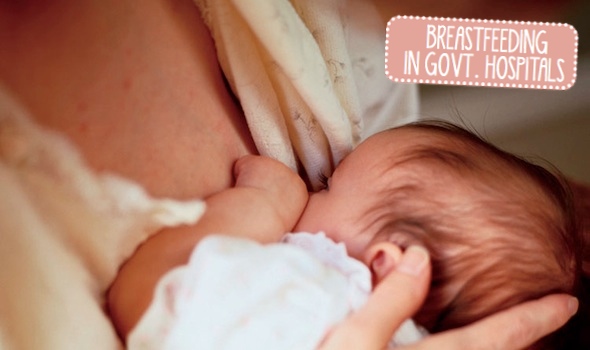

Breastfeeding is promoted, encouraged and supported in Hong Kong government hospitals in principal. However, in practice, the level of support offered can vary. Although well meaning, some staff may want to follow routines that are not necessarily in the best interests of the breastfeeding mother, but an informed and prepared mother can confidently stand her ground to get what’s best for her and her baby. Here, Hulda Thorey, midwife and founder of Annerley, provides advice on how to prepare for breastfeeding in the government system.
Breastfeeding immediately after birth
Nowadays, if everything around your baby’s birth is normal, most hospitals will not take them away for the traditional initial check; and a request to have the baby given straight to you means that you can usually initiate immediate breastfeeding. Of course, on the rare occasion a baby is not doing so well straight after birth and the hospital wants to transfer the baby to the special care unit for neonatal help, most parents are more than happy for the quick response.
It is the cases in between that are hard to call. If there were complications in labour, the hospital staff may want to take the baby for observation in the special care unit as a precautionary measure. If, however, there are no actual signs of anything being abnormal, it should usually be possible for the staff to leave the baby with the mother in the postnatal ward, and make their observations there.
Research has shown us that babies who are with their mothers immediately after birth, who stay skin-to-skin and are fed on demand, have better oxygen saturation, have better stabilised blood sugar levels and recover sooner than those that are under observation in the neonatal units. Of course it is also important to ask the nurses and midwives in the postnatal ward for help if you have any doubts that your baby is, for example, not breathing well, or not feeding well.
Breastfeed on demand
Research shows us that the sooner breastfeeding is initiated, the more the supply responds to baby’s demand, especially if breastfeeding is initiated immediately after birth. Most hospitals have a policy of encouraging breastfeeding every two to three hours, although babies don’t always agree to this timetable! Some want to feed little and often; others will want to feed for longer, taking both breasts with longer gaps between feeds. It is impossible to impose a rule that applies to all mothers as to how often and long to feed and for this reason, breastfeeding on demand, and keeping the baby with you at all times, is very important.
How to be a successful breastfeeding mother
- Prepare beforehand with classes that teach you about breastfeeding.
- Arrange help from the professionals. Annerley, midwives or lactation consultants can help from straight after birth if things are not going according to plan.
- Ensure skin-to-skin contact with your baby immediately and offer the breast ideally within 10 to 20 minutes after the birth. Keep the baby with you from then onwards.
- If your baby needs to go to the neonatal unit, go with them and give instructions that you want to breastfeed only. Even if it conditions are not optimal, try to maintain skin-to-skin contact, even if this is just stroking your baby’s hand.
- The nurses and midwives around have limited time, so make the most of it and ask for help! Don’t be afraid to stick with what suits you best and call your professional if you need more help than you’re getting.
- Try different feeding positions – lying on your side in bed, sitting up, feeding from the front or side.
- Feeding should not be teeth-grittingly painful, but at the beginning you may feel soreness.
- Wear a top that you can pull up or down so that the baby can be skin to skin with you while you feed.
- Check the nappies! If you record one a wet nappy on the first day, two the second day, three the third, you are probably on the right track.
- Be confident and informed to withstand any pressure to stop breastfeeding if someone in authority tells you your baby needs formula. The truth is that your baby needs feeding, and as long as you are there with them, there will be food.
- If you have difficulty with breastfeeding, or if your baby is not with you get help to express milk. Some hospital staff believe there is no milk in the breasts immediately after birth. Of course this is not true, but if you are struggling to feed, expressing will help to maintain and increase your milk supply.
Breastfeeding can be challenging but incredibly rewarding. It’s convenient, free and good for both you and your baby. Focus on keeping your baby with you, or you with the baby, should they need to be taken elsewhere. With many challenges in life, the correct answer is often “wait and see” but with breastfeeding, this is not the case, so seek help if you need to. I have heard a lot of encouraging breastfeeding stories come out of the government hospitals and the more we ask for support with breastfeeding from staff and show our appreciation when we get it, the more progress we see. So be optimistic, informed, and don’t be shy. Breast really is best.
 View All
View All











 View All
View All





 View All
View All


 View All
View All













